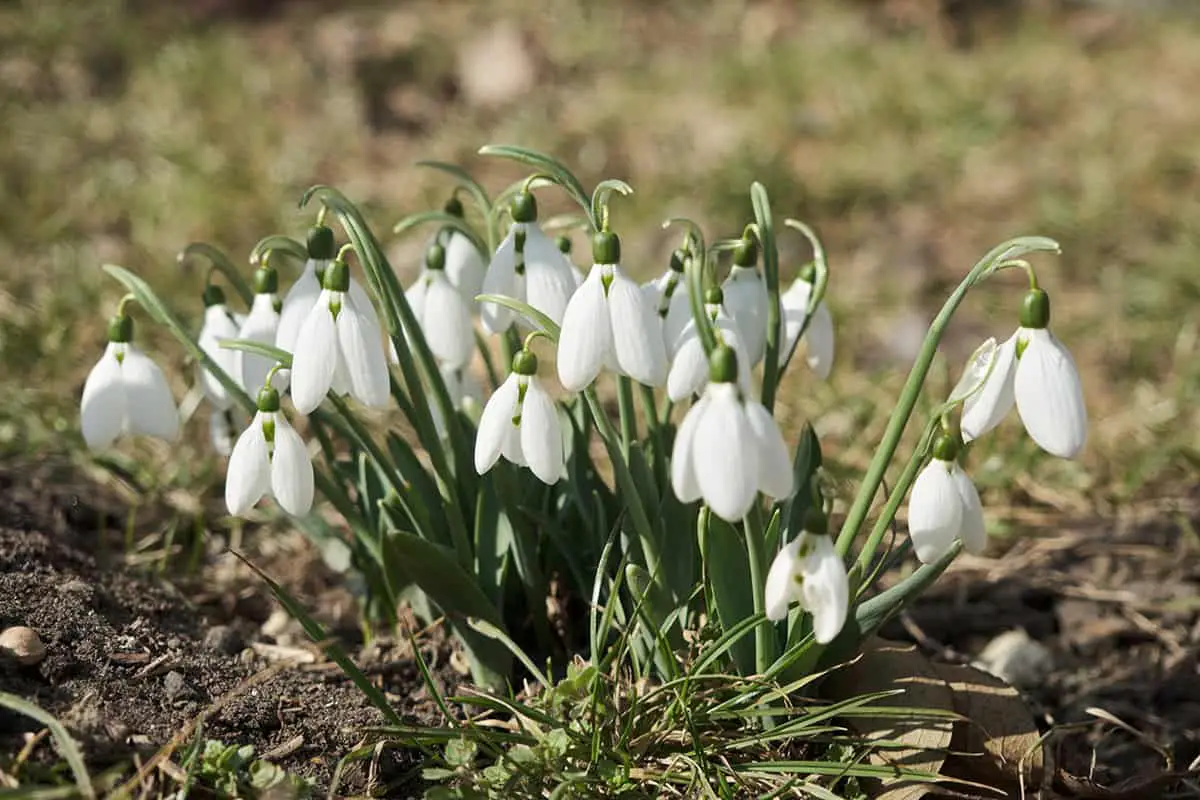You’ve spent weeks nurturing your vegetable garden, only to find that squirrels have been treating it like their personal buffet. This can be incredibly frustrating. Planting certain types of plants can help keep these pesky critters at bay. In this article, you will learn which plants naturally deter squirrels.
Table of Contents
Daffodils
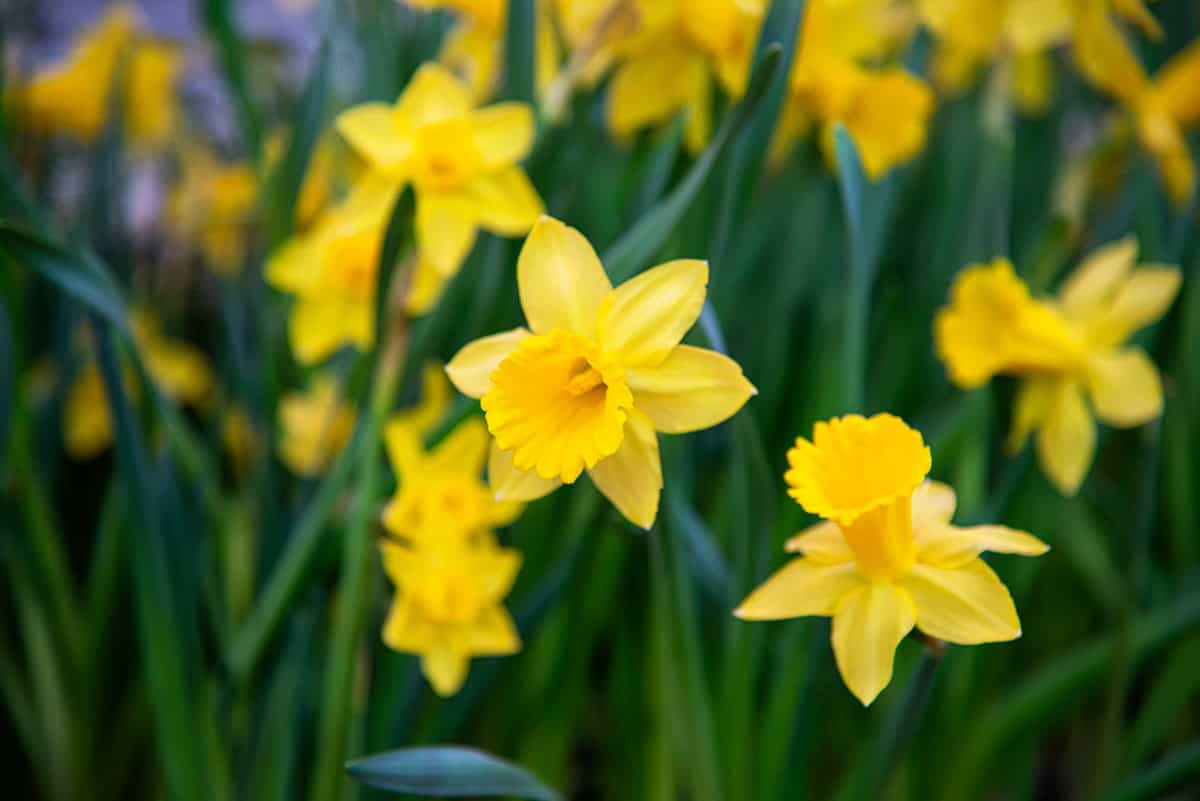
Daffodils, with their vibrant blooms, have a dual purpose in your garden. They radiate early spring charm and deter squirrels. These flowers emit a fragrance that squirrels find unpleasant. As a result, squirrels often avoid areas where daffodils grow.
Daffodils are not just aesthetically pleasing. They are practical, too. When you plant them in drifts or clusters, they create an effective barrier. This method reduces the likelihood of squirrels invading your space to dig up bulbs.
When you select daffodils for your garden, consider the variety. Some produce larger flowers and can make a bold statement. By planting them around the perimeter or interspersed with other bulbs, you make your garden less attractive to squirrels.
Daffodils are hardy and require minimal maintenance. They thrive in well-drained soil and need moderate sunlight. Once you plant them, they will return year after year. This offers you a long-term solution to keep squirrels at bay. Remember to plant them at the proper depth, as recommended, to optimize their growth and protective qualities.
Fritillaries
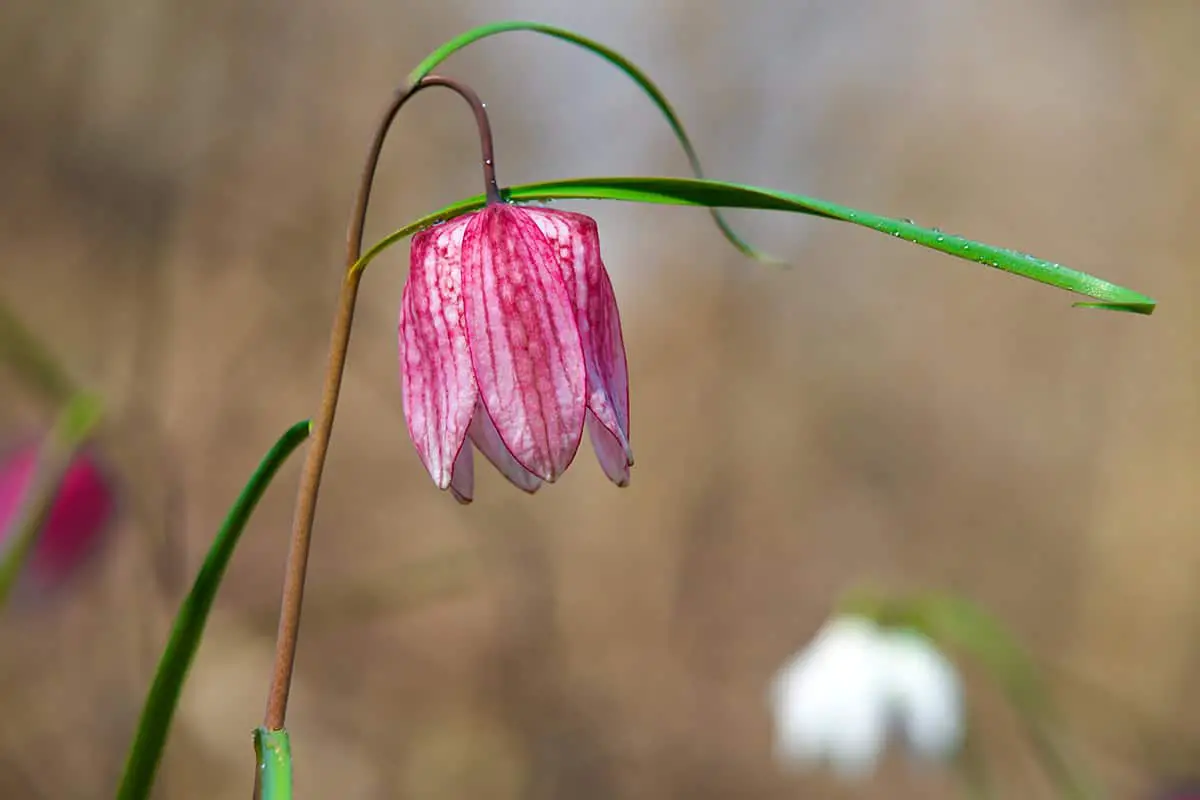
Fritillaries can deter squirrels from your garden. This bulbous plant, known as Fritillaria meleagris, features bell-shaped flowers. They are striking, with a checkered pattern often compared to a guinea hen’s feathers.
Your garden can become less attractive to squirrels with fritillaries. These plants emit a scent that squirrels tend to avoid. Planting them acts as a natural repellent, reducing the likelihood of squirrels disturbing your space.
Care for fritillaries is straightforward. They prefer well-drained soil and can thrive in partial shade. Blooming occurs in spring, adding color and protection to your garden. Be sure to plant the bulbs in the fall for a spring display.
Fritillaries are hardy and low maintenance. They return yearly, making them a lasting solution for your squirrel problems.
Snowdrops
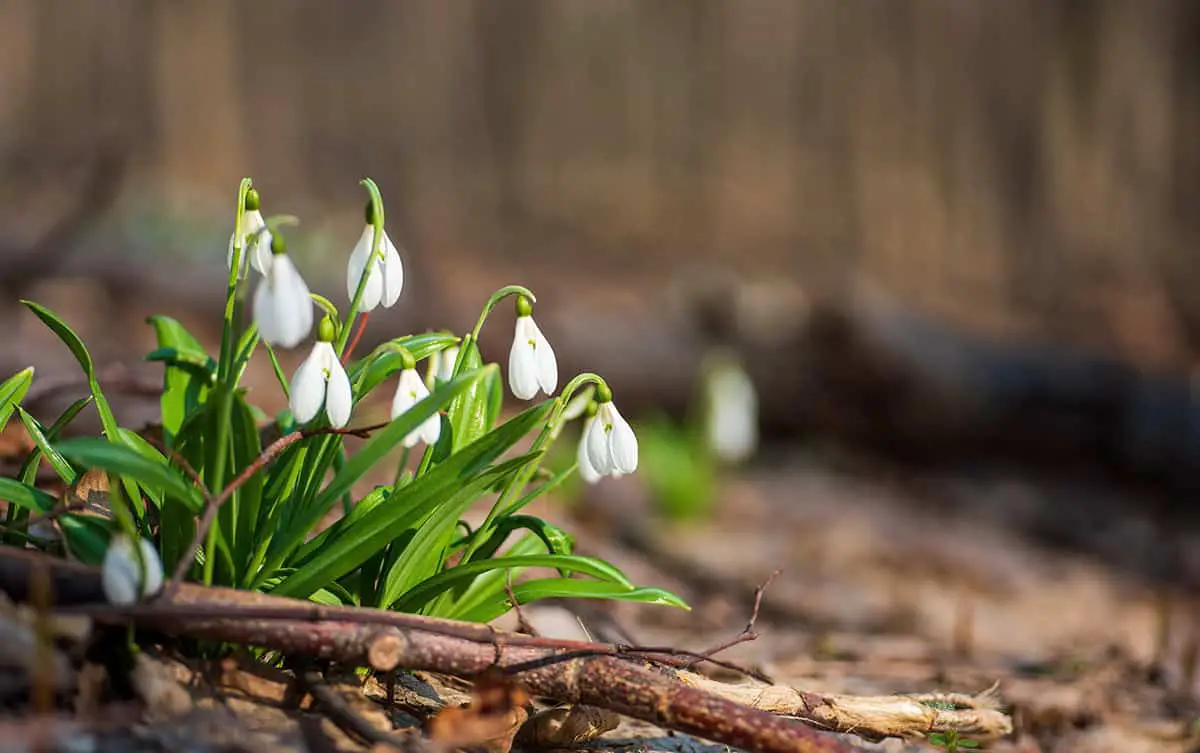
Snowdrops are an early-blooming plant that brings life to your garden at the end of winter. You may notice their delicate white flowers as a sign of spring’s arrival. They’re not just beautiful; snowdrops may deter squirrels due to their hardy nature and certain compounds they contain.
These plants emerge even when there is snow on the ground. You’ll appreciate their resilience as they grow in clumps and naturalize over time. Place them in well-drained soil to ensure they thrive. Snowdrops prefer cooler temperatures and partial shade but can adapt to various conditions.
Including snowdrops in your garden layout helps keep squirrels at bay. These creatures often avoid the plant, though not through strong aversion. Snowdrops provide a peaceful environment and keep your garden looking vibrant, even when most other plants are dormant.
Hyacinth
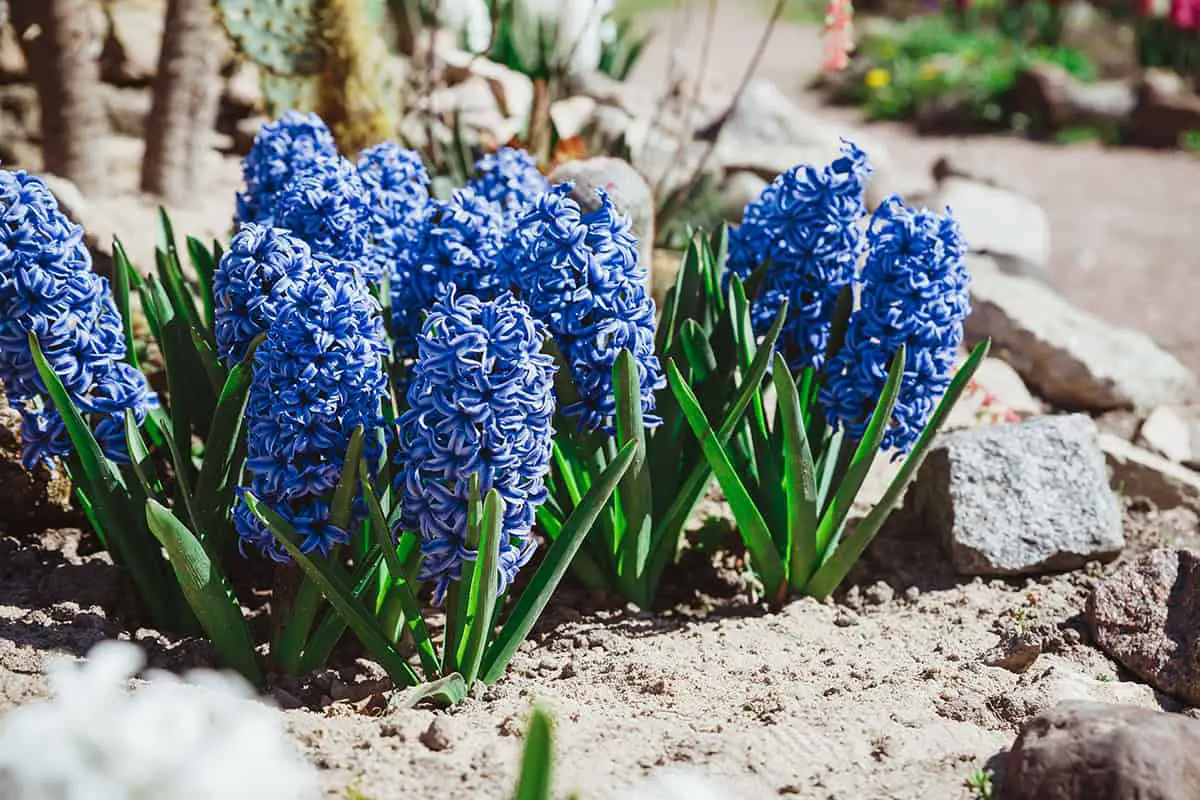
Hyacinths are vibrant flowers that can help protect your garden. Their strong fragrance deters squirrels. You enjoy a colorful display while keeping pests at bay. These flowers belong to the Asparagaceae family and originate from southwestern Asia.
Plant Hyacinthus orientalis to add a barrier against squirrels. Ensure to plant them deep and press the soil firmly. This makes digging difficult for these critters. Watering the plant bed after planting also compacts the soil.
For best results, include Hyacinths in strategic locations around your garden. These flowers demand minimal care beyond standard watering and are suitable for beginners. They can be the first line of defense in your garden.
Lily of the Valley
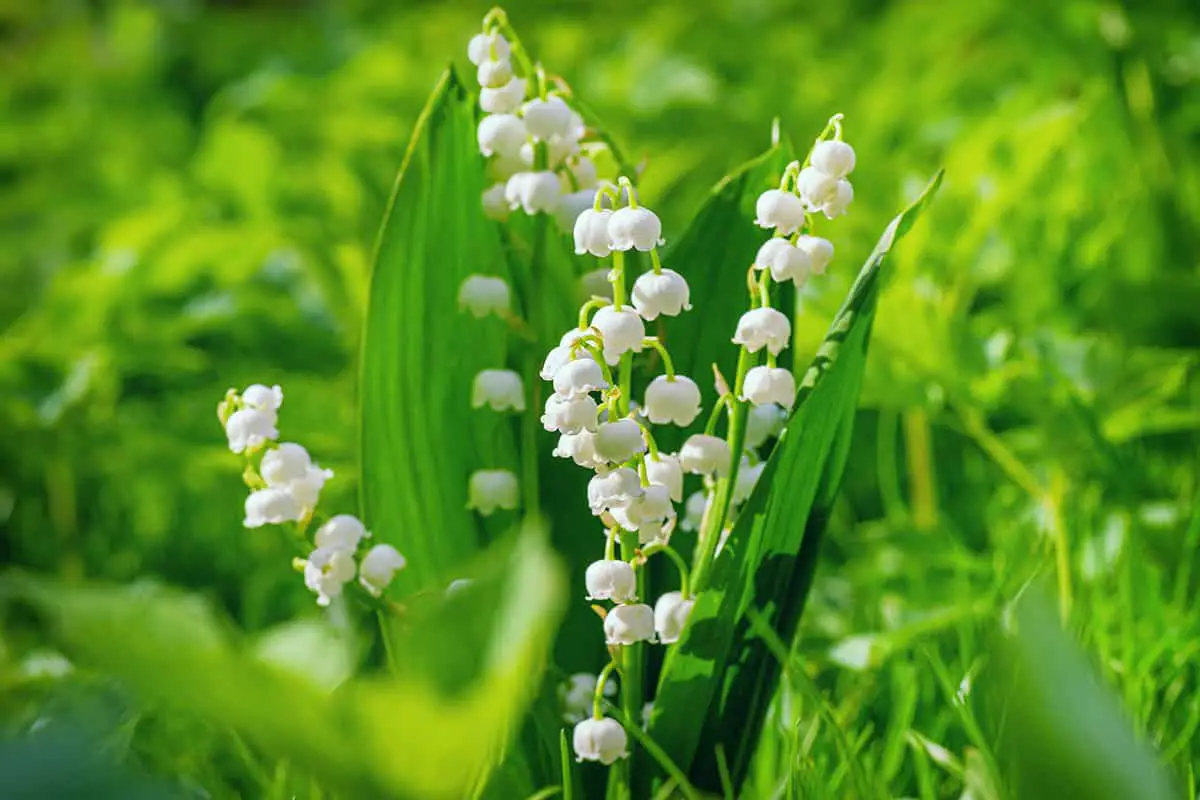
Lily of the Valley is a plant that adds beauty to your garden and can help deter squirrels. This flowering perennial has a sweet scent and bell-shaped blossoms. It thrives in shady areas where it can spread. Its ability to multiply may keep smaller mammals like squirrels at bay. They often prefer open spaces and avoid dense planting which Lilly of the Valley provides.
This plant’s resilience is noteworthy. Once established, it endures nibbling by some wildlife. Depriving squirrels of hiding spots is essential in a garden setting. Lily of the Valley contributes to this by forming thick ground cover. The presence of this plant may reduce the appeal of your garden to squirrels seeking concealment.
Consider the growing conditions for Lily of the Valley. It prefers moist, rich, and well-drained soil but does not fare well in dry or extremely hot environments. Proper placement and care ensure it grows vigorously, creating a less hospitable environment for squirrels.
Geraniums
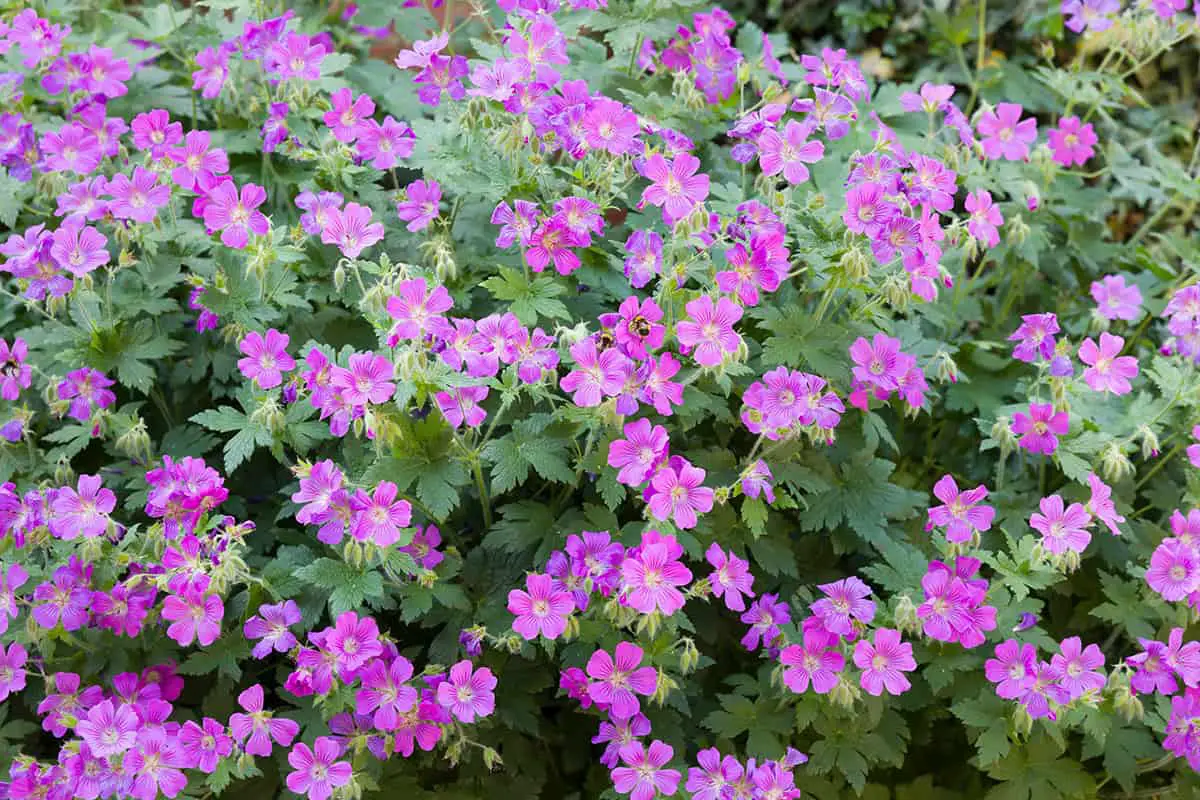
Geraniums deter squirrels from your garden. Their scent is strong and it repels these pesky critters. You can plant Geraniums around the perimeter of your garden space. This creates a natural barrier that discourages squirrels from invading.
These plants thrive in sunny locations with well-drained soil. For optimal growth, ensure you plant them in an area that receives ample sunlight. The soil should drain well to avoid root rot, which can weaken the plants.
In cold climates, you need to overwinter your Geraniums. Before the first fall frost, dig them up and store them properly. They can resume growing once the spring warmth returns. By storing them, you ensure they continue to protect your garden yearly.
Remember that Geraniums need regular pruning. This keeps them healthy and enhances their squirrel-repelling abilities.
Marigolds
Marigolds offer you a natural approach to keep squirrels away from your garden. These vibrant plants emit a scent that squirrels find unpleasant. By adding marigolds to your garden, you create a less inviting area for these critters. Yet, it’s important to acknowledge that despite their strong aroma, marigolds are not always a foolproof method for repelling squirrels.
Research has dispelled the myth that marigolds are pest-resistant, but they can still play a role in your garden’s defense. For instance, they can attract beneficial insects such as ladybugs and hoverflies. These insects help control pest populations, which might otherwise attract squirrels looking for food.
In addition to their potential as a squirrel deterrent, marigolds are also easy to grow and maintain. They thrive in full sun and well-drained soil, which makes them an excellent choice for beginners and experienced gardeners alike. Their vivid blossoms add both beauty and function to your outdoor space.
Lastly, remember that while marigolds may not repel insects as once believed, they can still contribute to a more balanced ecosystem in your garden. This balance can indirectly dissuade squirrels from visiting by reducing the overall insect populations that are their food source. To maximize effectiveness, consider combining marigolds with other protective measures.
Mint

Mint can help keep squirrels away from your garden. Its strong scent is disagreeable to these critters. This plant is easy to grow and serves as a natural pest deterrent. You can plant mint along the edges of your garden.
Ensure mint has sufficient sunlight and well-drained soil. Its hardy nature allows it to thrive in various conditions. Just remember, it’s a vigorous grower and can become invasive. To control its spread, consider planting mint in pots or contained spaces.
Research suggests mint’s aroma is potent for repelling squirrels. To make the most of its repellent properties, distribute mint plants strategically throughout your garden. They require minimal upkeep once established.
For additional squirrel control, combine mint with other repellent plants. This integrated approach increases your garden’s resilience against pests. With mint in your arsenal, your garden has a strong line of defense against squirrels.
Oregano

Oregano is a perennial herb that you may use to deter squirrels from your garden. Its strong scent masks the smell of potential food, making it less attractive to these curious creatures. Growing oregano can add a layer of protection for your plants. You simply plant oregano around the perimeter of your garden or near plants particularly vulnerable to squirrels.
When you plant oregano, ensure it has well-drained soil and ample sunshine. This herb thrives in these conditions and requires minimal maintenance once established. It’s important to water oregano regularly until it’s fully grown. After that, it becomes quite drought-tolerant.
Besides its functionality as a repellent, oregano offers you culinary benefits. You can harvest it fresh to add flavor to various dishes. Its leaves contain antioxidants, which are beneficial for your health. As a bonus, oregano flowers draw beneficial pollinators such as bees to your garden, promoting a healthier ecosystem.
To effectively use oregano against squirrels, intersperse the plant throughout your garden. Its presence can help keep your vegetables and flowers safe. Remember to regularly clip the leaves to encourage fuller growth and to maintain its potent scent that helps keep the squirrels at bay.
Garlic
Garlic can deter squirrels from your garden. This pungent plant releases a strong aroma that squirrels find unpleasant. You can plant garlic around the perimeter of your area of concern. The scent creates a natural barrier.
When planting garlic, ensure you space the cloves properly. Place them 3-4 inches apart in rows. This spacing allows for adequate air circulation and robust growth.
It’s essential to maintain your garlic plants well for the best effectiveness. Keep the soil moist and the area weed-free. This care ensures your garlic grows strong and continues to emit a powerful scent.
By incorporating garlic into your garden, you protect your vegetables and flowers. Garlic serves as a dual-purpose plant: it enriches your cuisine and safeguards your garden.
Lavender

Lavender plants are a natural way to keep squirrels away from your garden. These aromatic herbs produce a scent that squirrels find unpleasant. Lavender is not only disliked by pests but also brings beauty and fragrance to your garden.
When you plant lavender, choose a sunny spot with well-draining soil. This herb thrives in dry conditions and may struggle in heavy, moist earth. It’s crucial to give the plants enough space to ensure airflow and prevent fungal diseases.
You must prune your lavender regularly. This stimulates growth and prevents the plants from becoming woody. Pruning allows for a bushier, more productive lavender plant.
To maximize the repellent effect, consider placing lavender near pathways or around the perimeter of your garden. The scent released as you brush past the plants can help deter squirrels. Knowing how to grow English lavender in your garden further enhances your chances of keeping pests at bay.
Thyme
Including thyme in your garden can help keep these critters away. Your garden stays safe, thanks to thyme’s strong scent. This herb is easy to grow and serves a dual purpose: repelling squirrels and providing flavor for your dishes.
Thyme thrives in warm, sunny conditions. It endures drought well. So, you won’t struggle to keep it alive. Ensure good drainage to maintain thyme’s health.
Consider using thyme as a natural repellent. It’s a safe method to protect your garden. You avoid chemicals and maintain the garden’s ecosystem balance. Thyme’s pleasant aroma is a bonus for you but a deterrent for squirrels.
Incorporate thyme near plants that squirrels find appealing. It creates a barrier that squirrels are likely to avoid. Thus, your plants are less tempting to the local wildlife. Thyme is a smart addition to any garden for these reasons.
Rosemary

As a squirrel deterrent, Rosemary strong scent is effective. The plant is easy to grow and requires minimal care.
To start, plant rosemary in well-drained soil. It prefers full sunlight. Remember to water it regularly but avoid overwatering. This herb thrives in warm climates and is drought-resistant.
In colder regions, rosemary needs protection from frost. You may plant it in containers for easy movement indoors during winter. Prune regularly to encourage growth and maintain shape.
By introducing rosemary into your garden, you create a natural barrier against squirrels. It’s a practical choice for gardeners looking for a natural repellent. Its fragrance, while pleasant to humans, is a natural deterrent to squirrels and some other pests.
Onions
Onions can help protect your garden from squirrels. These pungent vegetables emit an odor that squirrels find unappealing. Planting onions around the perimeter of your garden creates a natural barrier. It deters squirrels from entering and feasting on your plants.
For effective squirrel prevention, use multiple layers of onion plants. This method increases the odor that keeps squirrels at bay. Intersperse onion plants among your garden’s other vegetables and flowers. This strategy not only enhances protection but also optimizes your garden space.
Onions require well-drained soil and full sunlight. Keep the soil around your onions loosely packed. Water them regularly to ensure they grow strong. Healthy onions will produce a stronger scent, making them more effective in repelling squirrels.
To protect your young plants, start onions indoors. Once established, transplant them outdoors in early spring. Trim their roots to half an inch and the tops to four inches. Plant them two inches deep and three to four inches apart.
